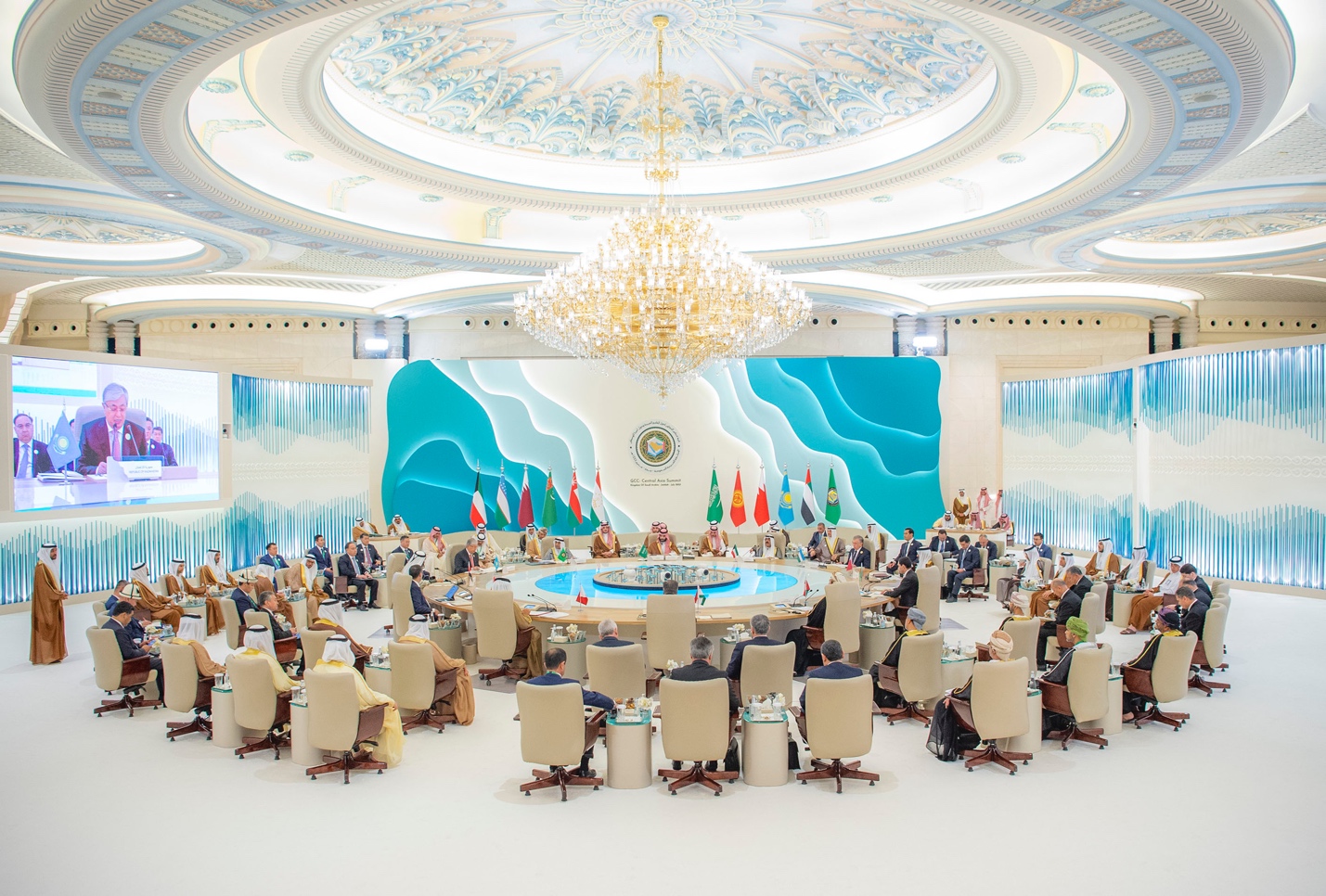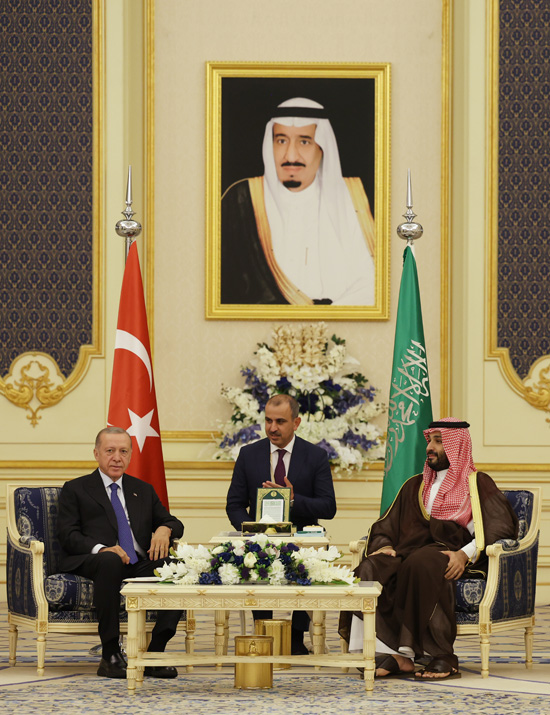Forging Regional Ties: Gulf Countries and Central Asia’s Growing Importance
Recent Articles
Author: Toghrul Ali
07/28/2023
On July 19, Saudi Arabia hosted the first Gulf Cooperation Council (GCC)-Central Asian Countries Summit in Jeddah. As the Gulf Countries have grown increasingly interested in the economic potential of Central Asia, this summit served as a display of their commitment to becoming more engaged with the region. However, this should not be construed as a one-sided pursuit to bridge the regions. Central Asia demonstrated its interest by offering the Gulf countries an alternative to its traditional trade partners, pointing toward a truly equitable economic partnership.
Chaired by the Crown Prince and Prime Minister of Saudi Arabia, Mohammed bin Salman bin Abdulaziz Al Saud, the summit’s main objective was to enhance cooperation and integration between the GCC and the five Central Asian states. Lately, the GCC, a regional organization comprising Bahrain, Kuwait, Oman, Qatar, Saudi Arabia, and the United Arab Emirates, has been placing more emphasis on strategically engaging with the Caspian region. In this line, creating the “GCC+C5” format provides a new opportunity for a more direct and unified approach from the GCC towards the region, allowing it to become an important external actor alongside the United States, European Union, and China.
President of Kazakhstan Kassym-Jomart Tokayev, President of the Kyrgyz Republic Sapar Japarov, President of Tajikistan Emomali Rahmon, President of Turkmenistan Serdar Berdymukhamedov, and President of Uzbekistan Shavkat Mirziyoyev, as well as leaders of the GCC member states, all attended the summit. Discussions were held across various domains, including political and security dialogues, economic and investment cooperation, and promoting people-to-people communication.
In his opening remarks, the Saudi Crown Prince emphasized increasing efforts to tackle challenges impacting energy security and global food supply chains. Additionally, he underlined the significance of respecting the sovereignty and independence of nations and refraining from meddling in their internal affairs. President Tokayev said that Kazakhstan is “ready to increase exports to Gulf countries by 100 commodity items that are worth about $400 million.” Calling tourism one of the fastest-growing sectors, Tokayev announced that visa-free access to Kazakhstan has been granted to all Gulf countries, and direct air communication with their capitals has been established. In this line, President Mirziyoyev proposed to create a single visa–free tourist space, “Gulf – Central Asia.”
 Source: Akorda
Source: Akorda
Trade and transport connectivity were also at the center of discussions. Further development of the Trans-Caspian International Transport Route (TITR), also known as the Middle Corridor, can ensure the smooth flow of goods from Central Asia to Europe and the Gulf region. “We plan to systematically increase the cargo flow through the Trans-Caspian International Transport Route (TITR) and bring it to 500,000 containers annually by 2030,” said Tokayev during his remarks. To improve the TITR, also known as the “Middle Corridor,” Mirziyoyev proposed “applying the most favorable tariffs, extensively using the existing multimodal corridors, and increasing direct flights through targeted subsidies.”
It should be noted that Gulf companies are already present in the Caspian region, working with regional authorities to develop the transport sector. In January 2023, United Arab Emirates' Abu Dhabi (AD) Ports Group signed a strategic partnership agreement with KazMunayGas to develop Kazakhstan’s Caspian fleet and coastal infrastructure for its energy exports. Similarly, in April 2023, AD Ports Group discussed prospects for cooperation with Azerbaijan. Further involvement of the Gulf-based companies in the region can provide the necessary technical know-how to help Caspian countries to operate a viable alternative route to bypass their traditional, Russia-oriented export routes for natural gas and crude oil. Moreover, diversifying supply chains across the Middle Corridor can drastically reduce the cargo delivery time by introducing new land freight and maritime lines.
In addition to connectivity, several Gulf-based renewable energy companies have been especially proactive in the Caspian region in the last few years. Namely, UAE-based Masdar and Saudi Arabia-based ACWA Power have been among the leading energy companies investing in developing the region’s promising renewable energy potential. In early 2023, Masdar started developing a 200MW solar photovoltaic (PV) plant in Kyrgyzstan and signed an agreement to construct three solar PV power plants in Uzbekistan. Similarly, in late 2022, ACWA Power signed a power purchase agreement to construct Central Asia’s largest wind plants and storage facilities in Uzbekistan. In the past, the UAE and Saudi Arabia have had limited interactions with the region due to their reliance on their well-established traditional energy industry. However, as new opportunities have arisen as part of the global green transition, Gulf countries have started fostering broader connections with Central Asia in order to work towards the ambitious goal of achieving net-zero emissions.
Following the meetings in Jeddah, the GCC and the C5 countries agreed to sign a joint action plan for strategic dialogue and cooperation between the two blocs for 2023-2027. According to the agreement, leaders of the two blocs vowed to continue “coordination in achieving regional and international security and stability, confronting challenges and working to ensure flexibility in fields ranging from supply chains to food security.” The summit concluded with plans for further cooperation between the two regions. Leaders participating in the summit agreed to organize an investment forum between the Gulf and Central Asian countries in Saudi Arabia in the last quarter of 2023. Furthermore, Turkmenistan and Kyrgyzstan announced their willingness to host the GCC-Central Asian Investment Forum in 2024.
The summit comes when the Gulf countries, namely Saudi Arabia and the United Arab Emirates, are dramatically increasing their engagement with the greater Caspian region. On July 17, Turkish President Recep Tayyip Erdoğan embarked on a three-stop tour of the Gulf states, paying an official visit to Saudi Arabia, Qatar, and the United Arab Emirates. Erdoğan’s trip proved fruitful as Türkiye and the UAE signed deals worth $50.7 billion in export financing, earthquake bonds, energy, and defense. Moreover, Turkish and Saudi ministries of defense signed an agreement on joint production and technology transfer that includes the largest contract to date to export Turkish Akinci unmanned combat aerial vehicles to Saudi Arabia. In this regard, Türkiye’s rapprochement with Saudi Arabia and the UAE has undoubtedly created more opportunities for the Gulf States’ future engagement with Central Asian countries.

Source: Twitter
As Central Asia’s growing strategic importance continues to garner attention from global powers, the Gulf countries have displayed a solid commitment to strategically engaging with the region. The five Central Asian countries, united under the C5 format, have been actively increasing their interaction with influential global actors, including the United States and China. In this context, the GCC+C5 format presents an unprecedented opportunity for both regions to reinforce their existing cooperation mechanisms. Looking ahead, the next summit has been scheduled to take place in Samarkand, Uzbekistan, marking a pivotal moment in solidifying the partnership. The GCC's unified approach towards cooperation with Central Asia not only garners the involvement of Saudi Arabia and the UAE but also draws interest from other council members. As both regions continue to recognize the growing importance of Central Asia, collaborative efforts hold the potential to create a profound impact on their shared goals and interests.